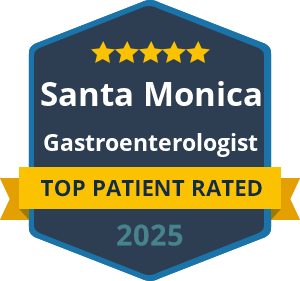
Colon cancer is one of the most common and preventable forms of cancer in the United States. According to the American Cancer Society, it is estimated that over 150,000 new cases of colorectal cancer will be diagnosed each year. While colon cancer can affect anyone, certain factors can significantly increase an individual’s risk. Understanding these risk factors is essential for early detection and prevention. At David P. Yamini, MD, with offices in Santa Monica and Beverly Hills, CA, we specialize in gastroenterology and liver disease, providing expert screenings and personalized care to help reduce your risk of colon cancer.
1. Age: The Biggest Risk Factor
Age is one of the strongest predictors of colon cancer. While 90% of colon cancer cases occur in individuals over the age of 50, the number of cases in younger adults has been rising. This trend has led to the American Cancer Society recommending that colon cancer screenings begin at age 45 instead of 50.
2. Family History and Genetics
Individuals with a family history of colon cancer or colorectal polyps are at a higher risk, especially if a first-degree relative (parent, sibling, or child) was diagnosed before the age of 50. Genetic conditions such as Lynch syndrome (hereditary nonpolyposis colorectal cancer, HNPCC) and familial adenomatous polyposis (FAP) significantly increase the likelihood of developing colon cancer at an earlier age.
3. Personal History of Polyps or Cancer
If you have previously had colorectal polyps or a history of inflammatory bowel disease (IBD), including ulcerative colitis or Crohn’s disease, your risk of colon cancer is higher. Regular colonoscopies and early detection are crucial in these cases.
4. Lifestyle Factors That Increase Risk
Several lifestyle habits contribute to an increased risk of developing colon cancer:
- Diets high in red and processed meats (such as beef, pork, and deli meats) have been linked to a greater risk.
- Low fiber and high-fat diets may contribute to inflammation and poor gut health.
- Obesity and sedentary lifestyles increase the risk of various cancers, including colon cancer.
- Excessive alcohol consumption and smoking have both been shown to contribute to the development of colorectal cancer.
5. Racial and Ethnic Background
Certain racial and ethnic groups have a higher incidence of colon cancer. African Americans have the highest rates of colorectal cancer and are more likely to be diagnosed at advanced stages. Ashkenazi Jewish populations also have an increased genetic predisposition to colon cancer.
6. Diabetes and Insulin Resistance
Studies have shown that individuals with Type 2 diabetes have a higher risk of developing colon cancer. Insulin resistance may promote the growth of cancer cells, making proper blood sugar management and lifestyle modifications crucial for prevention.
Protect Yourself with Early Detection
While these risk factors increase the likelihood of developing colon cancer, regular screenings, lifestyle changes, and early intervention can dramatically reduce your risk. Colonoscopy remains the gold standard for colon cancer screening, allowing for the detection and removal of precancerous polyps before they develop into cancer.
At David P. Yamini, MD, we are committed to providing expert gastroenterology care to help you understand your risk and take proactive steps toward prevention. If you have any risk factors or are due for a colon cancer screening, schedule an appointment today at our Santa Monica or Beverly Hills, CA offices to prioritize your digestive health and well-being.
Posted on behalf of




